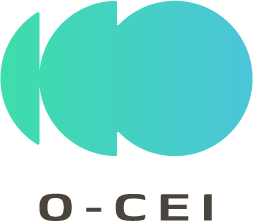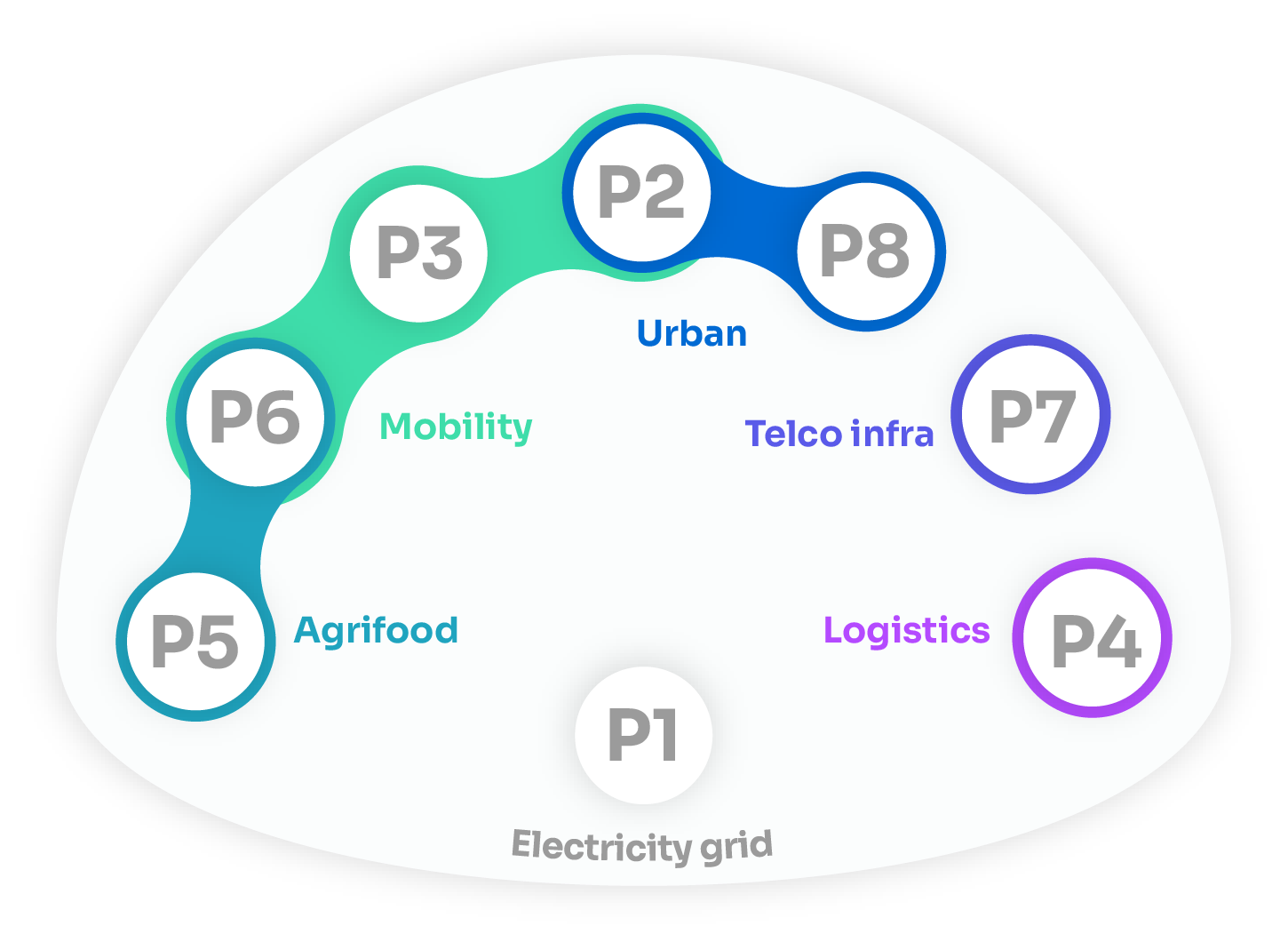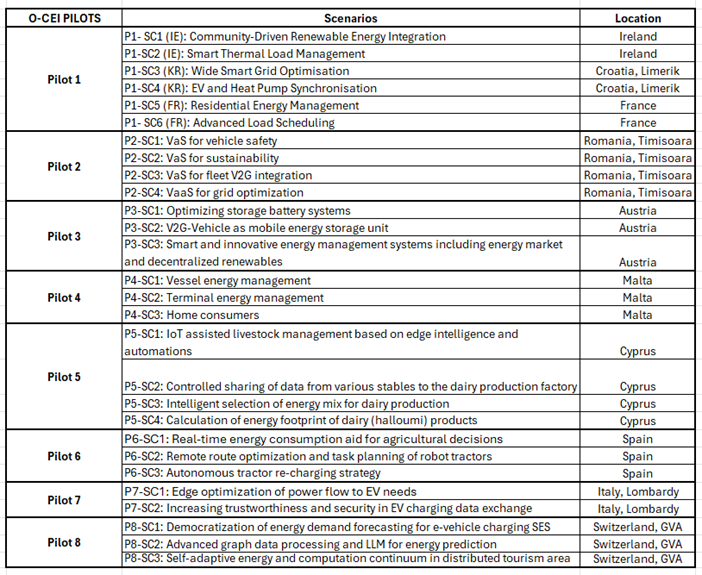VALENCIA, 5th of February 2025 – The O-CEI project, a groundbreaking Horizon Europe Innovation Action program, has officially launched to address one of today’s most pressing challenges: sustainable and energy-efficient digital networks.
The rapid growth of data-driven infrastructures has increased energy consumption, costs, and carbon emissions. This challenge is further amplified by the fragmented nature of cloud ecosystems, which struggle to efficiently manage resources across diverse edge devices such as e-vehicles, IoT-enabled sensors, and smart devices. O-CEI tackles this fragmentation head-on by fostering seamless collaboration between independent entities and enabling real-time data sharing to optimize energy usage and improve operational efficiency.
An Open Platform for a Greener Tomorrow
O-CEI aims to create an open CEI platform that emphasizes interoperability, security, and reliability. The platform seeks to build an ecosystem to accelerate innovation and adoption of CEI solutions, enable energy flexibility, establish CEI standards, and create viable and scalable business models.
The platform will be developed based on information collected across six strategic verticals, addressing critical sectors such as electricity grids, electromobility, software-defined vehicles, agriculture, logistics, and urban environments. To this end, O-CEI will conduct eight large-scale pilots to showcase innovative applications, including optimizing renewable energy grids, promoting sustainable dairy production, enabling smart electric vehicle charging, and managing energy in maritime ports. Through 28 real-world scenarios, the project looks to demonstrate its flexibility and scalability, emphasizing its potential to transform diverse sectors and drive sustainable innovation.
By advancing open standards and virtualization technologies, the project will enable collaboration and innovation across the six verticals. This cross-domain integration will empower industries to make faster, more precise energy predictions and implement adaptable solutions, significantly reducing energy consumption and environmental impact.
The project allocated up to 4 million euros for two Open Calls which will start as of January 2026.
A Vision for Strategic Autonomy and Sustainability
O-CEI unites 58 partners from 20 countries, including leading industrial players, research organizations, academic institutions, SMEs, and non-profits. Together, these stakeholders will shape a resilient ecosystem and a competitive market for European businesses and key innovation stakeholders.
The project coordinator, Prof. Carlos Enrique Palau Salvador, from The Polytechnic University of Valencia, underlined O-CEI’s transformative potential:
“O-CEI represents a bold step toward reimagining Europe’s Cloud-Edge-IoT ecosystems. By harnessing the collective power of industries and innovators, we’re crafting solutions that optimize energy efficiency for a more sustainable and resilient digital infrastructure. O-CEI isn’t just about technology—it’s about building a sustainable future for generations to come.”
If you are interested in following the development of the O-CEI project, follow it on LinkedIn and Mastodon channels and visit its website.
The project coordinator, Prof. Carlos Enrique Palau Salvador, from The Polytechnic University of Valencia, underlined O-CEI’s transformative potential:
“O-CEI represents a bold step toward reimagining Europe’s Cloud-Edge-IoT ecosystems. By harnessing the collective power of industries and innovators, we’re crafting solutions that optimize energy efficiency for a more sustainable and resilient digital infrastructure. O-CEI isn’t just about technology—it’s about building a sustainable future for generations to come.”
If you are interested in following the development of the O-CEI project, follow it on LinkedIn and Mastodon channels and visit its website.
Media Contact: olivia.ciubotariu@digital4planet.org or support@o-cei.eu
O-CEI (Open CloudEdgeIoT Platform Uptake in Large Scale Cross-Domain Pilots) in figures:
6 key strategic verticals: electricity grid, electromobility, software-defined vehicles, agrifood and agriculture, logistics, and urban environments
8 large scale pilots:
- P1 – Electricity grid optimization upon RES integration
- P2 – SDV for Vehicle as Software
- P3 – Smart BEV charging for green postal fleet operations
- P4 – Energy management in challenging maritime port scenario
- P5 – Sustainable dairy extensive production process
- P6 – Efficiency of e-tractor operations in large-scale kiwi crops
- P7 – private 5G deployment for enhanced EV distributing charging
- P8 – Social acceptance of energy flexibility in urban areas



